Bad opinion polls have encouraged retrogressive thinking, argues James Marshall
Dismissing the Jeremy Corbyn leadership as less important than the latest ephemeral street protest, or urging comrades to stay aloof from the battle raging in the Labour Party, is the worst kind of sectarianism. Unfortunately, we have seen that from too many on the left: eg, Socialist Party in England and Wales, Socialist Workers Party, the Morning Star’s Communist Party of Britain and Left Unity.
On the other hand, adopting an uncritical approach to Corbyn, refusing to condemn the ‘anti-Zionism equals anti-Semitism’ smear campaign, attempts to appease the Labour right, abandonment of one principle after another – that is the road to disaster; a road foisted on Momentum with Jon Lansman’s cynical, anti-democratic coup (with the active connivance of Jeremy Corbyn, Diane Abbott and Clive Lewis).
Frankly, the Labourite left has no viable strategy for socialism. Even the thought of it has become vanishingly small. Just like the Labourite right, the Labourite left is committed to a Labour government for the sake of a Labour government. ‘The worst Labour government is better than any Tory government’ runs their mutual slogan. In other words, managing capitalism, though it may entail vicious attacks on the working class, is preferable to resisting capitalism and organising the working class for the struggle for socialism.
On the contrary, as Kier Hardie famously said in 1910, we need Labour MPs, “not to keep governments in office or to turn them out, but to organise the working class into a great, independent political power to fight for the coming of socialism”. That should be our motto; that should be our strategic objective. Hardie, note, was clearly influenced here by the likes of Karl Kautsky, August Bebel, Vladimir Lenin and the Second International majority. True, organising the working class into a political party committed to socialism, enlightening millions with the theory of Marxism, coordinating our actions internationally – means that the immediate prospect of a Labour government recedes. However, that is the only sure way to achieve working class rule and the global transition to communism.
Labour’s (eminently predictable) bad poll ratings under Corbyn’s leadership have catapulted disorientated leftwingers – eg, Paul Mason and Owen Jones – far to the right. Any kind of majority Labour government appears impossibly remote – especially with boundary changes, the continued UK Independence Party threat in the north of England, the near Scottish National Party monopoly in Scotland and the bulk of Labour MPs still in open conflict with Corbyn.
Polls can be wrong: eg, David Cameron’s May 2015 general election victory, the Brexit vote and Donald Trump. Nevertheless, the Tories are so far ahead, the margin is so wide, that, barring some unforeseen accident, we are surely heading for a Labour defeat of 1931 proportions. The most recent ICM poll for The Guardian shows the Tories extending their lead to 18 points (the Tories being on 44% and Labour on 26%).
Corbyn’s lame response was to say that the Labour Party was “better” at getting its message across online and blaming the media for the poor ratings. As if the Labour Party can rely on the capitalist press, radio and TV. Obviously, Labour cannot get anywhere just through tweeting. It needs a full-spectrum alternative media.
Indeed Marxists – genuine Marxists, that is – are committed to a root-and-branch transformation of the Labour Party. Instead of the ‘next Labour government’, the priority must be a sovereign conference, a meaningful clause four, commitment to a programme of international socialism, automatic reselection of MPs, the subordination of MPs to the national executive committee, MPs on an average worker’s wage, the closure of the compliance unit, rooting CLPs in workplaces and communities, new trade union affiliates, ending the bans and transforming the Labour Party into a united front open to all socialist organisations.
It is not only the wretched Paul Mason and Owen Jones who have undergone a full-scale political collapse. Comrades in Socialist Resistance and the Labour Representation Committee are in effect advocating the slogan, ‘Any government is better than a Tory government’. Naturally, this is done under the banner of ending the ‘age of austerity’. Hence the siren call for “forming a government through a progressive alliance with other parties”: ie, a Labour-Green-SNP-Plaid Cymru alliance. Writing in the Labour Representation Committee’s monthly journal, John McDonnell, the shadow chancellor, echoes this council of despair. He says we must “start the work” of building the “progressive alliance”. Some even want to give an invite to the Liberal Democrats. The LRC’s Peter Bowing too calls for a “progressive coalition” and in that spirit urges Labour to “lead the Liberal Democrats, Greens and SNP in opposing Brexit”.
A clear case of political regression. A return to Millerandism, Menshevism or the popular fronts of ‘official communism’. And, be warned, in the oft quoted words of George Santayana, “Those who cannot remember the past are condemned to repeat it”.
Millerandism
In 1899 the French socialist, Alexandre Millerand, agreed to become a minister in Pierre Waldeck-Rousseau’s coalition government of ‘republican defence’ – this was at the height of the Dreyfus affair. Millerand took his cabinet seat alongside general Alexandre de Gallifet, the butcher of the 1871 Paris Commune. Inevitably, this provoked widespread indignation, both in France itself and internationally.
Yet the advance of the baying Catholic, royalist and military right was stopped and Millerand steered through a wide range of reforms, including the reduction in the maximum working day from 11 to 10 hours, the introduction of an eight-hour working day for postal employees, the prescribing of maximum hours and minimum wages for all work undertaken by public authorities, the establishment of arbitration tribunals and inspectors of labour.
Millerandism became the subject of heated debate at the congress of the Socialist International held in Paris over September 23-27 1900. Previously any participation in a coalition government with bourgeois parties had been regarded as a gross violation of elementary principle. Millerand was, of course, part of a growing trend, which included Peter Struve in Russia, Eduard Bernstein in Germany and Sidney Webb in Britain. This revisionist opportunism erupted into outright social chauvinism in August 1914.
In an attempt to smooth over divisions, Kautsky tabled a rotten, though successful, compromise motion. Class collaboration was roundly condemned … but there was a get-out clause: “Whether in a particular case, the political situation necessitates this dangerous experiment [of joining a coalition government with bourgeois parties – JM] is a question of tactics and not principle.”
Lenin sarcastically dismissed the resolution as being made from “caoutchouc” – that is to say, India rubber: it could be stretched in any direction. Hence, outrageously, Millerand could claim to be a good socialist, differing with other good socialists only in terms of tactical considerations.
Understandably then, Millerandism continued to be a source of fierce controversy. At the 1903 (Dresden) Congress of the Social Democratic Party of Germany, Kautsky supported the resolution condemning revisionism and, implicitly, Millerandism. So, while in Paris Kautsky was “running with the hares”, at Dresden he was “again to the fore, now ‘barking with the hounds’” (Daniel De Leon, 1904).
With a minor amendment, the SDP’s Dresden resolution was agreed at the Socialist International’s 1904 congress in Amsterdam. It deserves the closest attention:
The congress repudiates to the fullest extent possible the efforts of the revisionists, which have for their object the modification of our tried and victorious policy based on the class war, and the substitution, for the conquest of political power by an unceasing attack on the bourgeoisie, of a policy of concession to the established order of society.
The consequence of such revisionist tactics would be to turn a party striving for the most speedy transformation possible of bourgeois society into socialist society – a party therefore revolutionary in the best sense of the word – into a party satisfied with the reform of bourgeois society.
For this reason the congress – convinced, in opposition to revisionist tendencies, that class antagonisms, far from diminishing, continually increase in bitterness – declares:
1. That the party rejects all responsibility of any sort under the political and economic conditions based on capitalist production, and therefore can in no wise countenance any measure tending to maintain in power the dominant class.
2. The Social Democracy can accept no participation in the government under bourgeois society, this decision being in accordance with the Kautsky resolution passed at the International Congress of Paris in 1900.
The congress further condemns every attempt to mask the ever growing class antagonisms, in order to bring about an understanding with the bourgeois parties.
The congress relies upon the socialist parliamentary group to use its power, increased by the number of its members and by the great accession of electors who support it, to persevere in its propaganda towards the final object of socialism, and, in conformity with our programme, to defend most resolutely the interests of the working class, the extension and consolidation of political liberties, in order to obtain equal rights for all; to carry on more vigorously than ever the fight against militarism, against the imperialist and colonial policy, against injustice, domination and exploitation of every kind, and finally to exert itself to the utmost to perfect social legislation and to enable the working class to fulfil its political and civilising mission.
The positive reference to the 1900 resolution was an obvious attempt to correct Kautsky without criticising Kautsky. Not a good omen.
Popular fronts
The popular fronts of ‘official communism’ are in essence a continuation of Millerandism. In the name of combating fascism, fighting for peace, uniting against Thatcherism, ending austerity, etc, etc, the parties of the working class are urged to seek a ‘broad democratic alliance’ with the ‘progressive’ parties of the bourgeoisie and petty bourgeoisie.
The result? The bourgeois and petty bourgeois parties set the limits of the political agenda and the parties of the working class are driven to the right … to the point of being prepared to suppress the working class. Of course, this leads, not to opening up the road to socialism, but to demoralisation and defeat. Why vote for those who refuse to support you against employers? Why vote for those who want to keep the capitalist state intact? No wonder Trotsky branded the popular fronts as a “strike-breaking conspiracy”.
This is what we saw in practice with popular front governments from Spain and France in the 1930s to Chile in the early 1970s. The socialist working class was constantly held back by the need to keep allies on board. Then it was betrayed. Mass strikes were sabotaged, manifestations of dual power wound down, militias disarmed.
The most disappointing thing about today’s calls for a “progressive alliance” is the sheer philistinism involved. In early 20th-century Russia, the idea of stages made a certain kind of sense. Eg, first an anti-tsarist revolution that unites all democratic forces; then, after a considerable historical delay, when capitalist economic development had finally created a working class majority, socialism comes onto the agenda. Such was the Menshevik reasoning. Though their strategy appeared to have a degree of logic, it assumed a Russia in isolation from the socialist revolution in Europe. Hence in 1917 the Mensheviks wanted state power not in the hands of the soviets, but a bourgeois-dominated provisional government, a “progressive alliance”, which would, by its very nature, continue Russia’s war against Germany.
In 2017 this caricature of Marxism has degenerated into a caricature of itself. Things are reduced to simple arithmetic – that is, addition: Labour, plus the SNP, plus Plaid, plus the Greens add up to a voter base that might beat the Tories in 2020. Such is the sum of their wisdom. However, arithmetic alone cannot suffice. At the very least we need to apply mechanics. Political parties move according to different trajectories, rely on different class forces and possess different social weights. Eg, Labour needs to rewin its traditional base in the central belt of Scotland, meanwhile the SNP is committed to a second referendum and Scottish independence. Hence either the Labour Party fights the SNP and its nationalist programme or, in the name of the ‘progressive alliance’, Labour dilutes its criticisms and reconciles itself to the loss of its MPs in Scotland and the permanent disunity of the British working class.
We do not oppose marching on protest demonstrations alongside members of the SNP, Plaid, the Greens, etc. Nor do we oppose rebuilding trade unions alongside members of the SNP, Plaid, the Greens, etc. Cooperation around single-issue campaigns and workplace terms and conditions can only be beneficial. But, obviously, a ‘progressive alliance’ based on the hope of forming a coalition government that manages capitalism stands in flat contradiction to the strategy of organising the working class into a “great, independent political power to fight for the coming of socialism”.
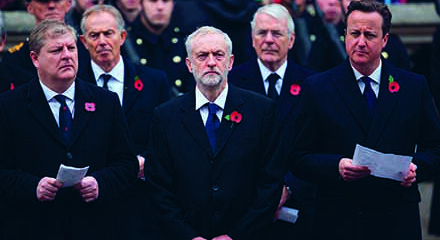

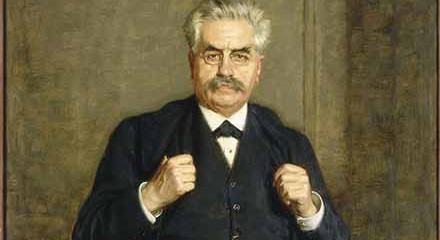
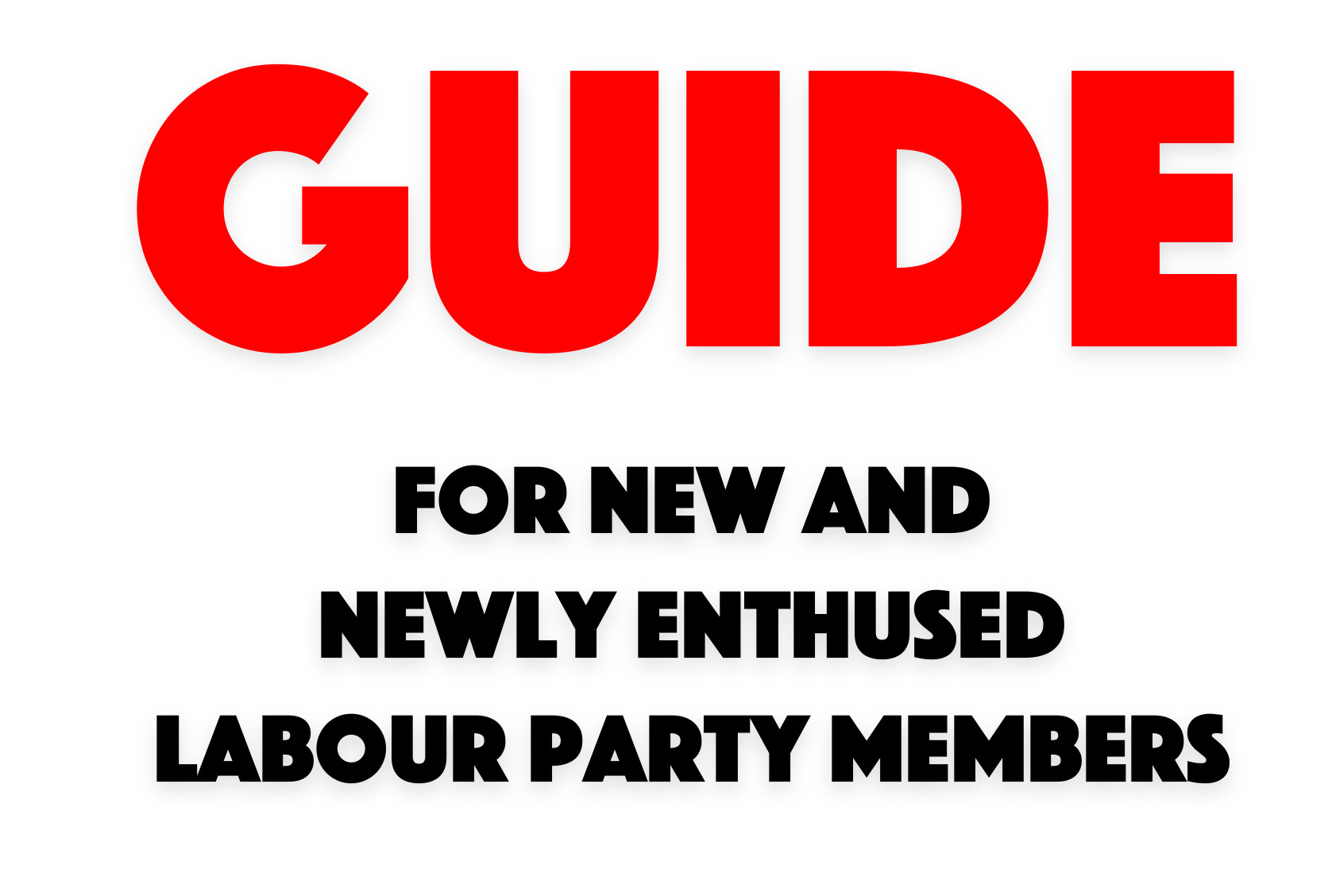

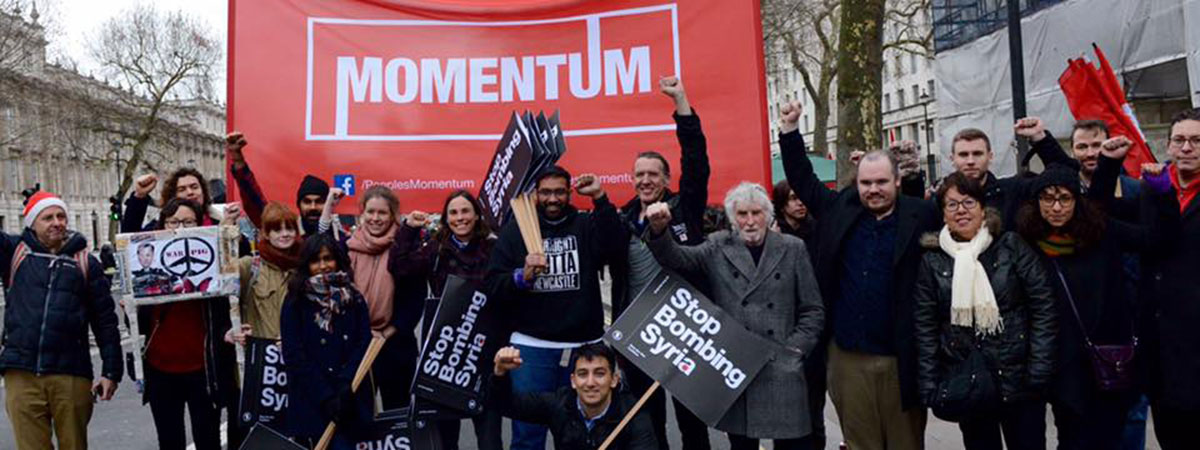
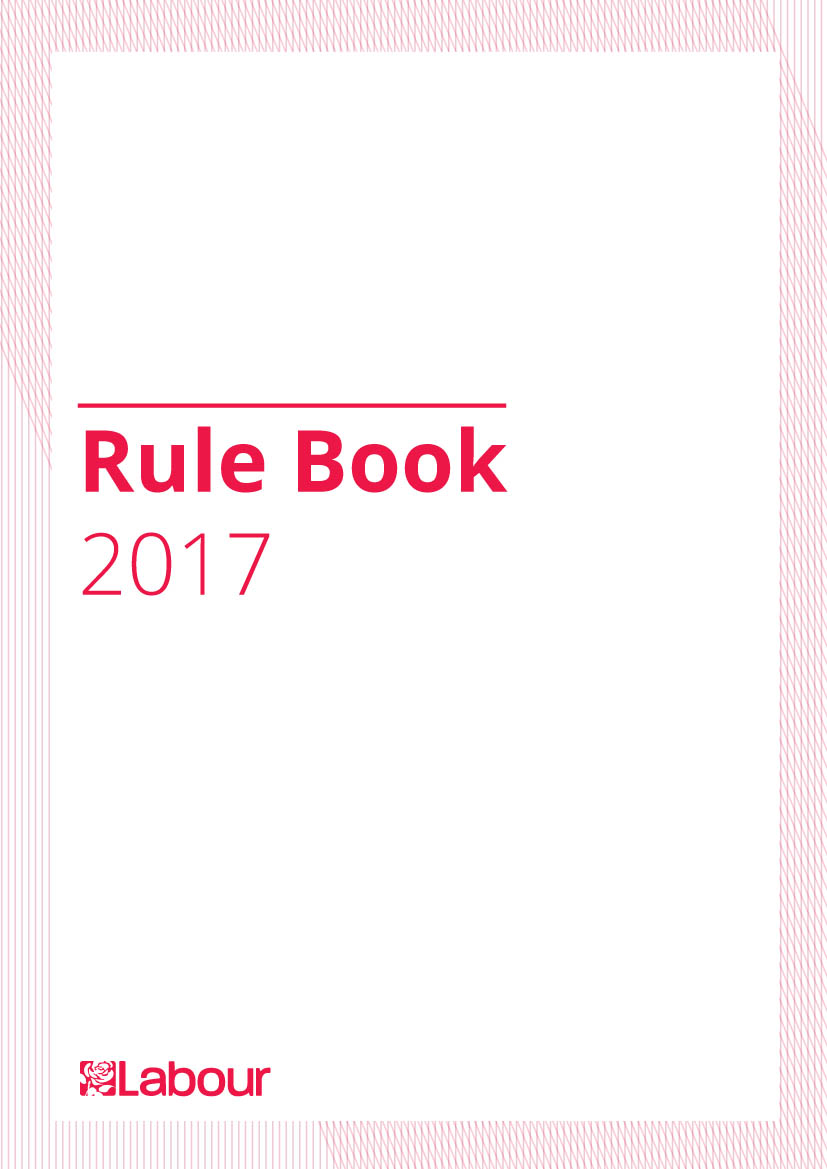
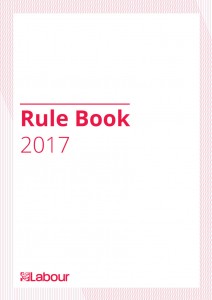 Rule Book 2017 in PDF
Rule Book 2017 in PDF